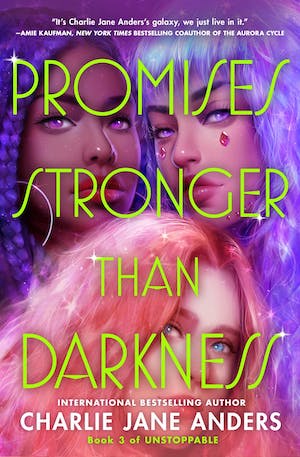There’s one common term that I was pretty careful not to use in my writing advice book, Never Say You Can’t Survive: “agency.” As in, “characters in a story should have agency.” Because, as I explain the one time I mention this term:
The concept of “agency” is very culturally loaded, and rooted in a lot of Eurocentric cis male notions of “rugged individualism.”
Of course, in the very next sentence, I do go on to say that as a general rule, if it’s a story about searching for the magic bidet of the Elf King, the protagonist might need to spend some time looking for that bidet. (Though, hang on: I would read the heck out of a story about the one person who refuses to join in the collective magic-bidet-hunt. Somebody please write this!)
But anyway, I’ve tried to avoid talking about “agency” as a desirable trait in fictional heroes for a while now, because it does feel very culturally loaded and individualistic. Lately I’ve been thinking about a different term that I like better: “authority.”
When people talk about “agency,” it often implies that a character is able to bring about a material change in their own circumstances—which is so often not the case in real life. And in addition to the “individualism” thing I mentioned above, it also includes a lot of rigid notions of how a protagonist should operate: pursuing their goals and pushing back against whatever antagonist or obstacles stand in their way. It’s built for a story about conflict in its crudest form.
So instead of “agency,” which is all about action and personal success or failure, I’m increasingly thinking about “authority.” I do not mean “authority” in the sense of holding a position of power in which you get to tell other people what to do with their lives. I’m using “authority” more in the sense of expertise, meaning that everybody is an authority on their own life. Their perspective matters, even if they might be deluded or confused about some aspects of their situation. It doesn’t matter if their perspective is accurate—what matters is that it carries weight within the story. Their own lived experience is valid.
I also think “authority” is closely related to the word “author,” and a POV character is an author of their own story to some extent, even if we’re usually aware that there is a flesh and blood person somewhere whose name is on the cover of the book.
Before anyone jumps in here: I love unreliable narrators. I love characters who are ambivalent or confused about what’s going on. Not even remotely saying anything against those things.
But I’ve been thinking lately about what actually bugs me in fiction, and I think this might be what’s bugging other people, too.
I don’t mind at all if a character is passive, helpless, or just uninterested in taking action. But I’ve definitely read plenty of works of fiction that seemed not to respect their own protagonist’s viewpoint—either because the author really wants to make sure you know that the protagonist is full of shit, or because it feels as though the author has never quite done the imaginative work to figure out how this character sees things, and what they think has happened. Instead, we’re standing outside the ostensible POV character or protagonist, even as they’re describing events. Sometimes a POV character has a perspective that is inconsistent in a way that doesn’t feel intentional or easy to track. Or the opinions of supporting characters are given priority, and I don’t even know if the main character agrees with these people or not.
If we are getting someone’s point of view in a narrative, I want to understand their version of events, and feel as though their opinions carry some weight, even if those opinions are muddled. There are plenty of ways to do this while still letting the reader know that this protagonist might be missing a lot of stuff. (George R.R. Martin is a master of this.)
So I have a gut feeling, which could be completely mistaken, that a lot of what people complain about when they talk about “agency” is actually this related question of “authority.” Especially considering that this question is often gendered, and it’s often characters who aren’t cis men who get accused of lacking agency—and I think one of the failure modes of fiction is to discount the perspectives of women, transfolk and gender non-conforming people, even when they’re supposedly centered.
I think this could also be a general “writing the other” issue, where authors from a dominant group are writing marginalized identities, including BIPOC characters, but aren’t able to fully inhabit those perspectives due to cultural blinkers. (And if that’s you, please get help.)
Here’s where I admit that I don’t have any handy examples. I read a lot of fiction, and it all blurs together in my mind after a while, and I’m more likely to remember if a particular book had a glaring plot issue. Plus, I don’t actually want to be mean and single anybody out.
Some of my favorite stories feature characters who are not masters of their own fate. See: Arthur Dent from The Hitchhiker’s Guide to the Galaxy, pictured above. But I know exactly how Arthur Dent feels about everything that’s happening to him, at all times. And exactly none of my favorite stories feature characters who seem disconnected in such a fundamental way that I can’t even tell whether what they think is happening and how they might feel about it.
Anyway, this is just something I’ve been thinking about lately. And I’m going to keep thinking about it, and maybe some of y’all will comment below and give me some other ways to think about it that I hadn’t considered!
This article was originally published at Happy Dancing, Charlie Jane Anders’ newsletter, available on Buttondown.
Buy the Book


Promises Stronger Than Darkness
Charlie Jane Anders is the author of the young-adult trilogy Victories Greater Than Death, Dreams Bigger Than Heartbreak, and Promises Stronger Than Darkness (which publishes on April 11, 2023), along with the short story collection Even Greater Mistakes. She’s also the author of Never Say You Can’t Survive (August 2021), a book about how to use creative writing to get through hard times. Her other books include The City in the Middle of the Night and All the Birds in the Sky. Her fiction and journalism have appeared in The New York Times, the Washington Post, Slate, McSweeney’s, Mother Jones, the Boston Review, Tor.com, Tin House, Teen Vogue, Conjunctions, Wired Magazine, and other places. Her TED Talk, “Go Ahead, Dream About the Future” got 700,000 views in its first week. With Annalee Newitz, she co-hosts the podcast Our Opinions Are Correct.










